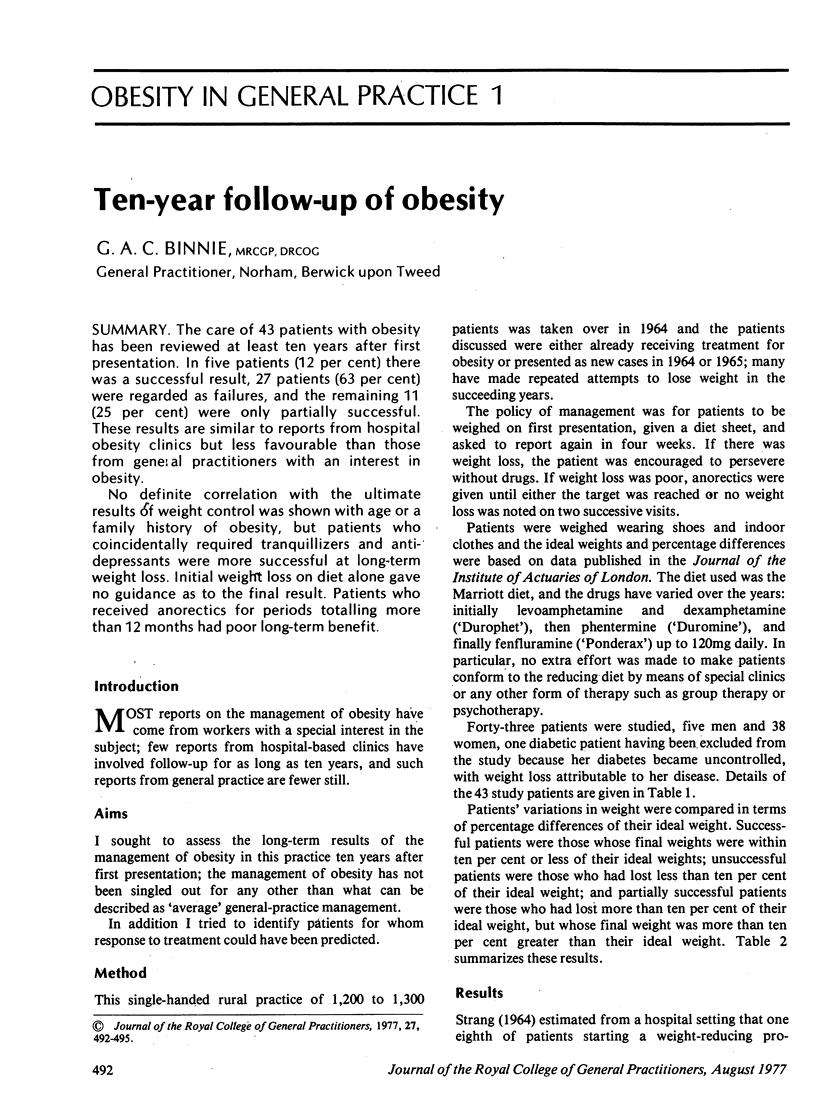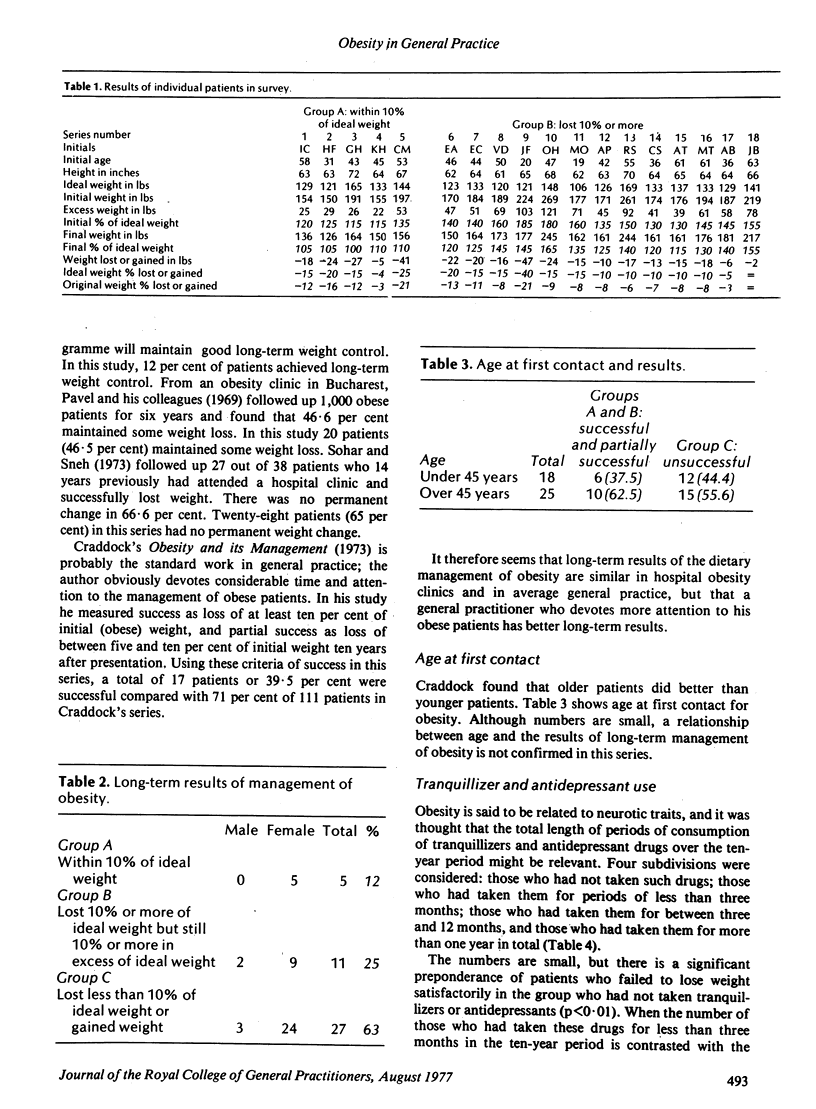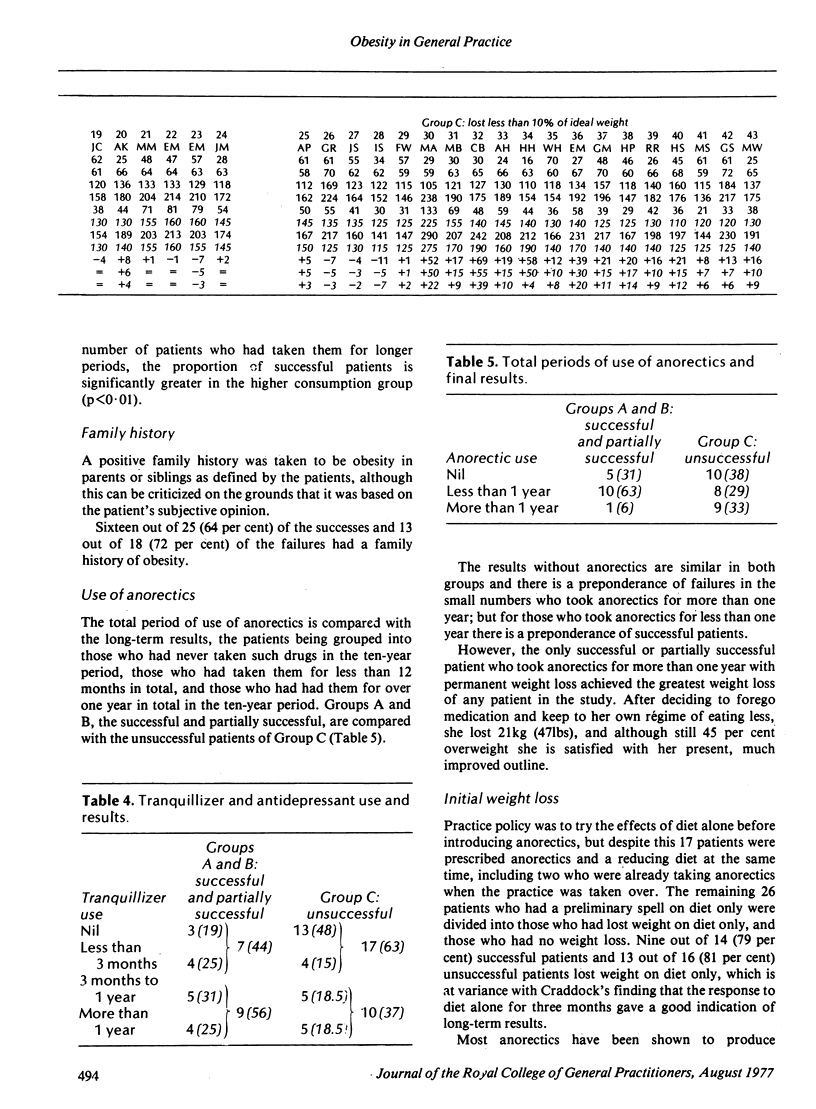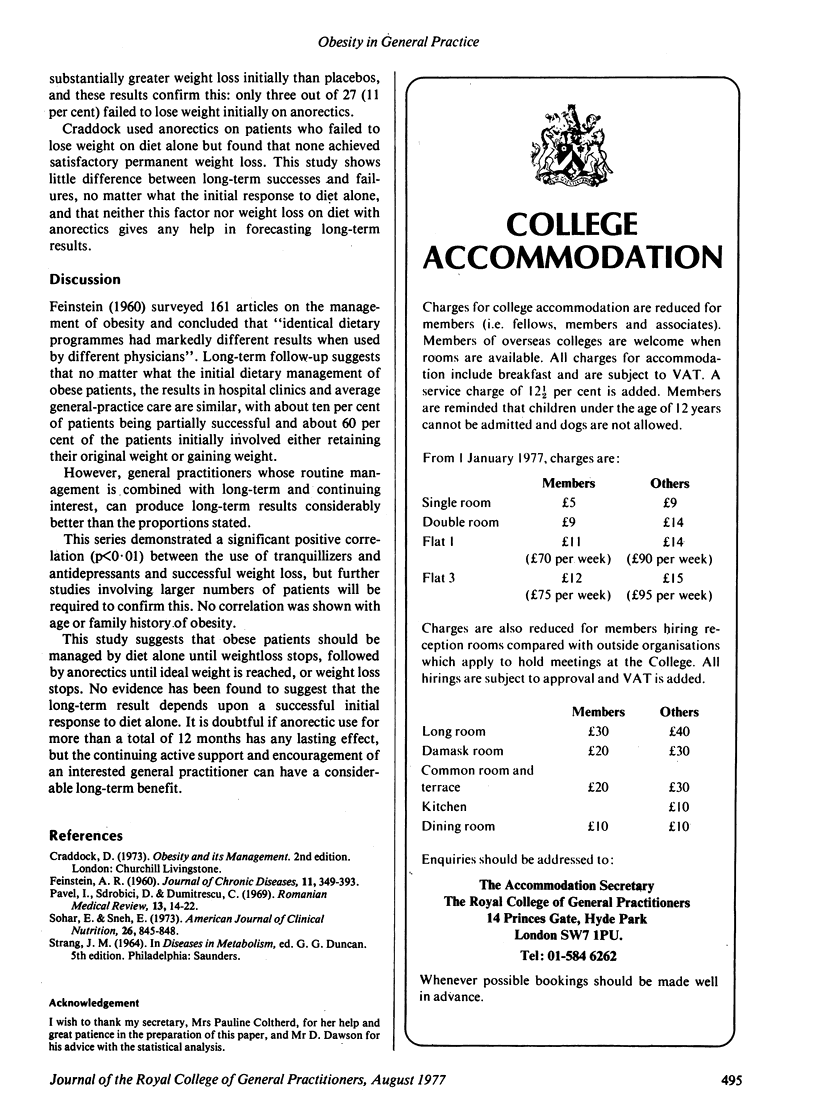Abstract
The care of 43 patients with obesity has been reviewed at least ten years after first presentation. In five patients (12 per cent) there was a successful result, 27 patients (63 per cent) were regarded as failures, and the remaining 11 (25 per cent) were only partially successful. These results are similar to reports from hospital obesity clinics but less favourable than those from general practitioners with an interest in obesity.
No definite correlation with the ultimate results of weight control was shown with age or a family history of obesity, but patients who coincidentally required tranquillizers and anti-depressants were more successful at long-term weight loss. Initial weight loss on diet alone gave no guidance as to the final result. Patients who received anorectics for periods totalling more than 12 months had poor long-term benefit.
Full text
PDF



Selected References
These references are in PubMed. This may not be the complete list of references from this article.
- FEINSTEIN A. R. The treatment of obesity: an analysis of methods, results, and factors which influence success. J Chronic Dis. 1960 Apr;11:349–393. doi: 10.1016/0021-9681(60)90044-8. [DOI] [PubMed] [Google Scholar]
- Pavel I., Sdrobici D., Dumitrescu C. The long-term efficiency of weight reducing cures for obesity. Rom Med Rev. 1969 Jan-Mar;13(1):14–22. [PubMed] [Google Scholar]
- Sohar E., Sneh E. Follow-up of obese patients: 14 years after a successful reducing diet. Am J Clin Nutr. 1973 Aug;26(8):845–848. doi: 10.1093/ajcn/26.8.845. [DOI] [PubMed] [Google Scholar]


